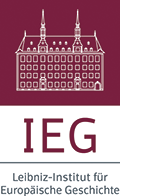Dr. Jared N. Warren
.jpg)
Member of the academic staff, Department of Abendländische Religionsgeschichte
Room: 01 212Phone: +49 6131 39 21129
Personal Details:
Jared Warren studied history, Eastern European studies, and French literature in Michigan, Kansas, and Kraków. He received his PhD from New York University in 2021 with a thesis on multi-confessionalism and Polish independence between 1795 and 1865. After his doctorate, he worked as a Max Weber Postdoctoral Fellow at the European University Institute in Florence and as a research assistant in the Department of Eastern and Southeastern European History at LMU Munich between 2021 and 2024. Together with Tomasz Hen-Konarski (Institute of History of the Polish Academy of Sciences), he has been organising the online initiative Assemani Seminar for Eastern Catholic History since 2022.
Research Interests:
Modern and Contemporary History of East-Central Europe
Multi-confessional societies; Catholicism and the Eastern Catholic Churches
Intellectual and cultural history and history of the natural sciences
Publications
“In the Shadows of the Commonwealth: Catholicism, Religious Tolerance, and Nineteenth-Century Polish Independence,” East European Politics and Society (forthcoming 2024).
Co-editor (with Eliza Kącka and Christian Zehnder), eds. “An Archeology of Modernity: Cyprian Norwid Revisited,” Zeitschrift für Slavische Philologie, vol. 78, no. 2 (2022), pp. 239–334. Co-authored “Introduction,” pp. 239–249.
“Cyprian Norwid and Slavic Race Theory,” Zeitschrift für Slavische Philologie, vol. 78, no. 2 (2022), pp. 293–214
“Appelé à prendre la parole: Adam Mickiewicz, George Sand, and Parisian Romanticism,” in Rocznik Komparatystyczny/Comparative Yearbook: Civilized/ Barbaric? Intercultural Dialogue on Poetry, vol. 4 (2013), pp. 25–38.
Research projects:
A Place for Plants: The Politics of Botanical Geography in East Central Europe, 1850–1930
This project studies the emerging science of botanical geography in the late nineteenth and early twentieth centuries in the Habsburg Monarchy and its successor states. It aims to understand how naturalists in East Central Europe came to understand the geographical spaces where they conducted their botanist collecting and research and the role of shifting political borders to their research practices. (How) did knowledge about plants participate in the articulation or legitimation of competing visions of space in East Central Europe?


